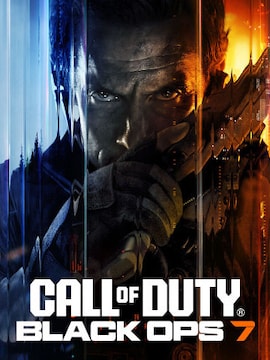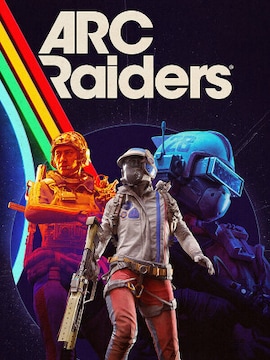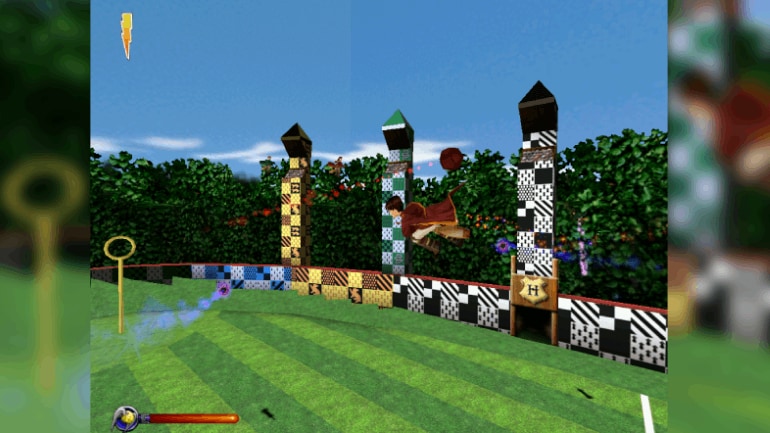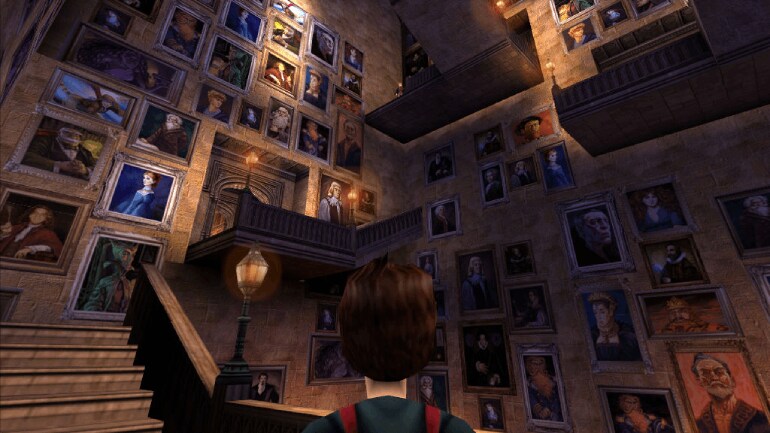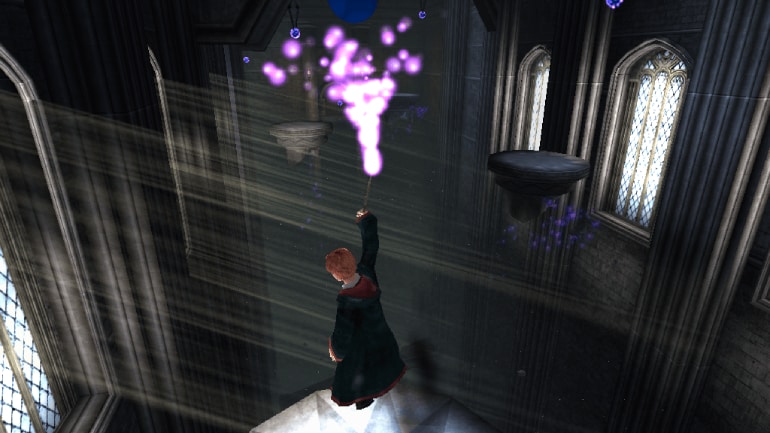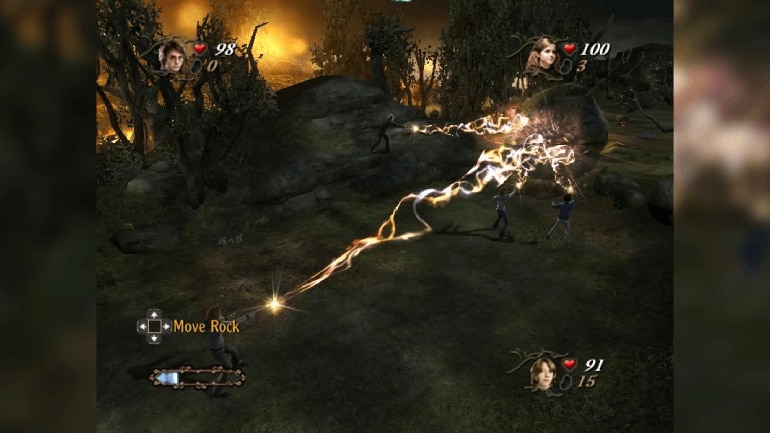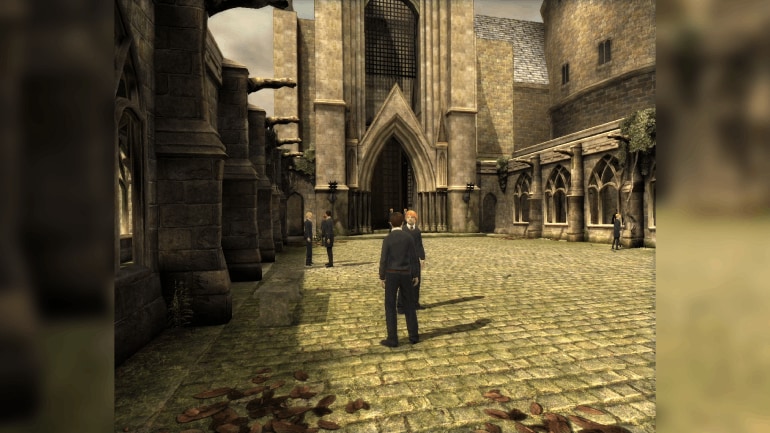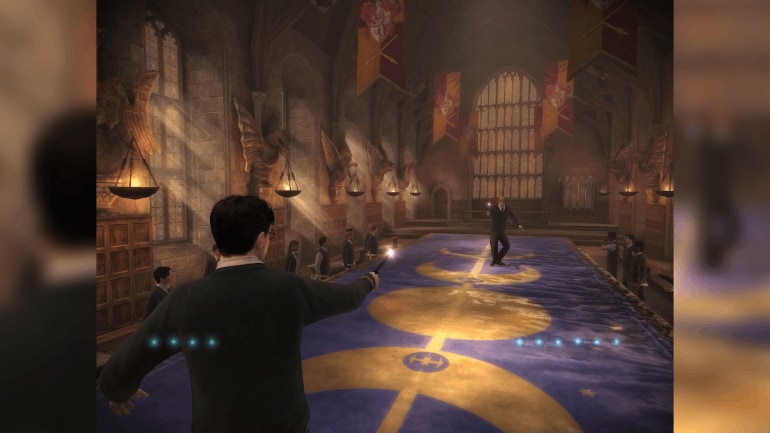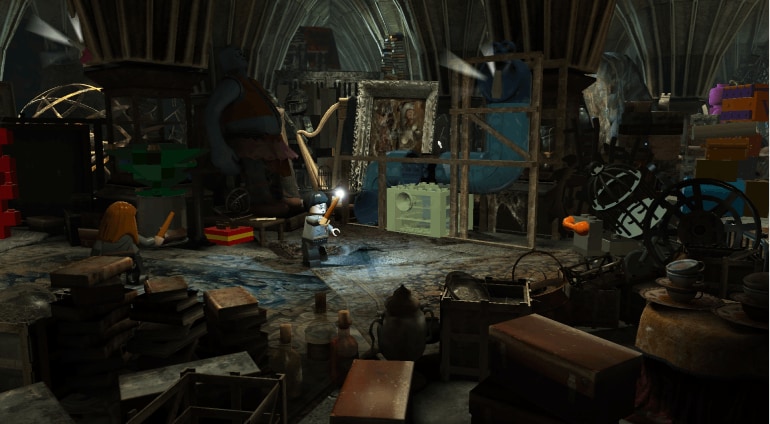It all started over 20 years ago when J.K. Rowling released her first book for kids and teens. But still, many people wonder where the Harry Potter phenomenon came from.
A series of seven fantasy novels published between 1997 and 2007 launched an avalanche of success that no one expected. The simple yet gripping story about a young wizard discovering the world of magic inspired many iconic movies, video games, theme parks, events, and an ever-growing fandom.
The first Potterheads are now adults, but the franchise has still not lost its popularity and is one of the groundbreaking foundations of world pop culture.
Harry Potter left a lasting impression that changed everything. But what makes it so special? Follow this brand-new G2A guide, and you’ll know all about the everlasting Harry Potter legacy!
| Game | Release | Genre | Developer | |
|---|---|---|---|---|
 | Hogwarts Legacy (EU/NA) | 2023-02-10 | Action RPG | Avalanche Studios |
 | LEGO Harry Potter: Years 1-4 | 2010-06-29 | Action-adventure | TT Games |
 | LEGO Harry Potter: Years 5-7 | 2012-01-05 | Action-adventure | Traveller's Tales |
 | LEGO Harry Potter: Years 1-7 | 2010-06-29 | Action-adventure | TT Games |
 | LEGO Harry Potter Collection (Nintendo Switch) (EU) | 2016-10-18 | Adventure | Traveller's Tales |
 | Harry Potter and the Deathly Hallows - Part 1 (Origin) | 2010-11-16 | Adventure | EA Bright Light |
 | Harry Potter and the Deathly Hallows - Part 2 (Origin) | 2011-07-12 | Adventure | EA Bright Light |
The Wizarding World
The term now stands for a thriving franchise covering all official Harry Potter products, locations, movies, and more. But its original meaning comes from an entirely fictional universe where the extraordinary adventure of a young wizard takes place. The Wizarding World was intended to be nothing more than a magical community living independently of the ordinary world – meaning a non-wizardry Muggle society.
Now it’s everything we know about Harry Potter – including Fantastic Beasts movies, the Harry Potter and the Cursed Child play, video games, soundtracks, and a website where anyone can determine which Hogwarts house they belong to.
Beyond the Pages of the Books
It took a while for the Harry Potter film franchise to even start. At first, the author did not want to agree to the film adaptation because of fear of losing the rights to the book characters. Then Steven Spielberg came along and suggested making Potter into an animated series. All of this and more was hyped regularly by the media, sparking a massive buzz in the fanbase and many fiery internet forums discussions.
People wanted more. And they desired to compare the envisioned world with the one on the screen. So when it finally came to release, Harry Potter and the Sorcerer’s Stone grossed a whopping $975 million.
And it was a smash! All the Harry Potter movies have become fantasy classics like Lord of the Rings or Game of Thrones. The settings were perfect, the plot closely tied to the books, the cast very British, and each part created such a magical feeling that fans still watch them over and over again. It was also the beginning of a massive career for Emma Watson, Rupert Grint, and Daniel Radcliffe, playing three friends joining the School of Witchcraft and Wizardry.
The kids starred in all movies, growing up with each title. And this process guaranteed an even greater attachment to favorite characters among the audience. So much so that despite many other brilliant films in his career, Daniel Radcliffe is still famous as that Harry Potter boy.
Fortunately, some of that magic has made its way into our Muggle world in the form of the Harry Potter theme parks known as Universal Studios’ Wizarding World of Harry Potter in Orlando, Hollywood, Japan, and Beijing.
They feature many magical attractions like Diagon Alley shops, Hogsmeade dining locations, related shows, and rides, allowing you to do your dream shopping or experience the legendary events of the series. And the numbers show how much desired this idea was, as all these parks regularly earn billions of dollars.
The Impact of Harry Potter on Literature
Let’s start with the fact that Harry Potter was never a perfect book. But what made it outstanding was J.K. Rowling’s enormous commitment to encouraging kids to read. The author created the character of a completely average boy living in an entirely ordinary world who discovers magical powers in himself and begins his education at Hogwarts. But it wasn’t always all so cute and cheerful.
Harry Potter grew up and had to deal with many challenging subjects like first loves, loneliness, misunderstanding, alienation, fear, and death. Each following part became darker and touched more mature themes. And yes, it was still a book for kids! But Rowling understood that young people don’t want taboos but a hero they can identify with.
So she took that knowledge and joined it with the secret dreams of every child and adult – to turn the normality into something unusual. And she did it so well that even Elizabeth II read the book and recalled her carefree childhood.
If Harry Potter was never a perfect book, its impact on the publishing industry is even more fascinating. There was a time before Potter when fantasy for young adults was nearly non-existent, and writing in that genre seemed somewhat awkward. People could choose between innocent fiction for kids or pieces of adult literature. Rowling combined these categories, assuming a little horror feature wouldn’t hurt younger readers.
Whether it was silliness, courage, or luck – it worked. And this single idea laid the foundations for a whole genre of young adult literature, the popularity of which continues to this day, sometimes only changing the themes. We all remember the wild vampire Twilight phase, right?
The Legacy of Harry Potter in the Real World
There is no doubt that Harry Potter influenced pop culture. But surprisingly, it also transformed the real world. In 2005, a non-profit organization known as the Harry Potter Alliance (now Fandom Forward) came to life to campaign on vital topics, including global human rights violations, LGBT rights, mental health, and climate change. It used iconic characters from the series to raise general awareness about the necessary changes. A great example is the A World Without Hermione campaign focusing on making education more available to school-aged girls.
Harry Potter has also become famously controversial as literature promoting occultism. There is no proof that it has such power but various organizations constantly mention the issue, claiming that children should protect themselves from the destructive influence of Harry Potter. As it turns out, this theory is as fictional as the entire story about the young wizard. Meantime, people play Quidditch, throw role-playing events, enjoy Potter-themed birthday parties, and have a great time drawing inspiration from this universe.
Various gadget producers know it well, earning cash on thousands of collectibles, pajamas, figurines, coffee mugs, and everything people use in their everyday lives. And those who don’t want to pay for this stuff craft their handmade versions for personal enjoyment.
Conclusion
So why is Harry Potter so popular? Unquestionably, it is the effect of the massive advertising campaign, movie adaptations, fandom, investments, and enormous media hype. But not entirely. All this would not have happened without the first product, meaning the book. Rowling released it at a strange period in human history – the transformation from pre-internet to online times.
So she fixed the reading crisis by unknowingly allowing new fans to explore their experiences with Harry Potter through an entirely different medium – the internet. And by giving young people a hero they could identify with, she captured their hearts in a truly spectacular style.

